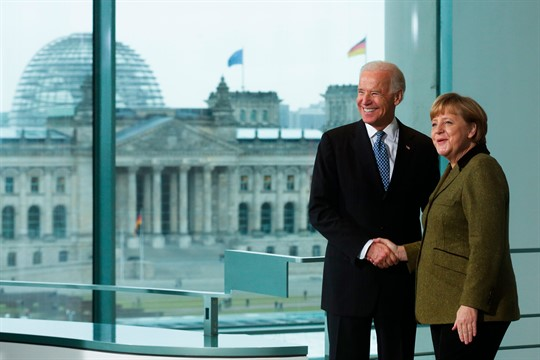Joe Biden’s election as U.S. president was greeted with deep relief in Berlin, as it was in most other European capitals. After Donald Trump’s presidency—which was characterized by animosity toward Germany and repeated attempts to sow division among European countries—German policymakers hope that some immediate sources of tension can now be resolved, such as Trump’s tariffs on European steel and aluminum imports or the long-running trans-Atlantic dispute over aerospace subsidies. There are also multiple opportunities for Germany to collaborate on key strategic challenges with Biden, a committed multilateralist and Atlanticist, who has repeatedly underlined the value of a strong and united Europe.
However, rebuilding trans-Atlantic relations after four years of attacks and tensions will require Germany to take the lead in tackling difficult issues across the Atlantic and within the European Union. The foundations for revived cooperation will need to be solidly established during the first six to eight months of Biden’s presidency, as Germany will hold federal elections on Sept. 26. Coalition negotiations and the formation of a new government can take several months.
 Eurasia Press & News
Eurasia Press & News



